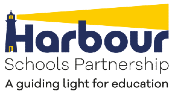KS1 (Ages 5-7)
From KS1 the curriculum continues to be underpinned by the Marwood School core values but subjects are grouped within four areas of learning:
- The Arts (English, Art and Music)
- STEM (Mathematics, Science, Computing and Design and Technology)
- Humanities (Geography, History and Religious Education)
- Physical and Social Development (PE, PSHE and RSE)
Summary of Key Stage 1 (KS1) Curriculum for Parents/carers
The Arts
English
- Reading: Children develop their phonics skills to decode words, improve their reading fluency, and begin to understand and enjoy a variety of texts.
- Writing: They learn to form letters correctly, write simple sentences, and use basic punctuation. They also start to plan and write short stories, descriptions, and factual texts.
- Speaking and Listening: Pupils enhance their ability to listen attentively, follow instructions, and express their thoughts clearly in discussions.
Art and Design
- Creativity: Children experiment with different materials and techniques to create their own artwork.
- Appreciation: They learn about famous artists and their works, and begin to express their opinions about art.
Music
- Performance: Pupils sing songs, play instruments, and perform simple pieces.
- Listening and Appraising: They listen to a variety of music and begin to express their preferences and opinions.
STEM (Science, Technology, Engineering and Mathematics)
Mathematics
- Number: Children learn to count, read, write, and order numbers up to 100. They begin to understand addition, subtraction, multiplication, and division.
- Shape, Space, and Measures: They explore shapes, sizes, and patterns, and learn to measure length, weight, capacity, and time using standard units.
- Problem-Solving: Pupils apply their mathematical knowledge to solve practical problems and puzzles.
Science
- Working Scientifically: Children develop skills in observing, asking questions, performing simple tests, and recording their findings.
- Key knowledge: They learn about plants, animals, and humans, including their basic needs and life cycles. Pupils explore everyday materials and seasonal changes.
Computing
- Digital Literacy: Pupils learn basic computer skills, including typing, using a mouse, and navigating software.
- Programming: They are introduced to simple coding concepts through fun and interactive activities.
Design and Technology
- Practical Skills: Children design and make products using a range of materials and tools.
- Evaluation: They learn to evaluate their own and others’ work, considering how it can be improved.
Humanities
Geography
- Local and Global Understanding: Pupils study their local area and compare it with other places around the world.
- Map Skills and Fieldwork: They learn to use simple maps and understand basic geographical terms to describe human and physical features.
History
- Chronology: Children learn about significant events (e.g. the Gunpowder Plot) and people from the past (e.g. Florence Nightingale), including local history and famous historical figures.
- Historical Enquiry: They develop skills in asking questions and using sources to find out about the past.
Religious Education
Physical and Social Development
Physical Education (PE)
- Movement Skills: Children develop coordination, balance, and agility through games, dance, and gymnastics.
- Teamwork: They learn to work together in team games and understand the importance of fair play.
Personal, Social, Health and Economic Education (PSHE)
- Wellbeing: Pupils learn about healthy lifestyles, relationships, and personal safety.
- Citizenship: They begin to understand their role in the community and the wider world.
This curriculum ensures that children in KS1 receive a well-rounded education, preparing them for future learning and helping them develop a wide range of skills and knowledge.
Curriculum Map (2024-25)
Below you will find a curriculum map for 2024-25. If you would like to know more about this, please speak to Mrs Hume (Class 2 teacher) or Dr Boon (Headteacher).



